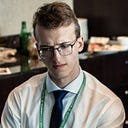Member-only story
Why So Few Trust Government & How an Inclusive Economy Can Change That
We are witnessing the emergence of a new world order. Following the Cold War, the U.S. and its allies made significant errors in the Balkans during the 1990s and in the Middle East in the 2000s.
These missteps have led to a decline in U.S. dominance in the 1990s and early 2000s, paving the way for Russia, China, Iran, North Korea, and others to advocate for a decoupling from the West and its allies.
Putin and Xi Jinping are particularly focused on weakening the West with their imperial ambitions. Putin’s hypocrisy is especially notable as he continues his efforts to eliminate Ukraine’s independence.
Countries are grappling with a crisis of trust, which is particularly worrisome during economic downturns, health emergencies, and other crises. Democracies rely on citizens’ trust in their government to function well.
But trust has been eroded because of a combination of our apathy and overconfidence.
That trust must be restored. A key path to that would be ensuring that government works to solve the problems of the everyday person.
Neoliberal economics has created a world where many are incapable of imagining how they will purchase their first home; many are opting out of post-secondary education due its exponentially-increasing costs; many are choosing not to have kids because of the costs associated with it.
Life is getting infinitely more expensive for all of us. Without solving the housing crisis, creating a more fair tax system, and providing more equitable conditions for the most disadvantaged in our societies, trust will never be restored in our governments.
Let me explain.
Countries are experiencing a trust crisis that becomes more alarming during economic downturns, health emergencies, and other crises. Democracies depend on citizen trust in government to operate effectively.
Here, I will be taking from an OECD study that establishes why trust in government has been declining. After that, I will discuss some areas where I believe government has to do better.
But first, why has trust in government been eroded?
